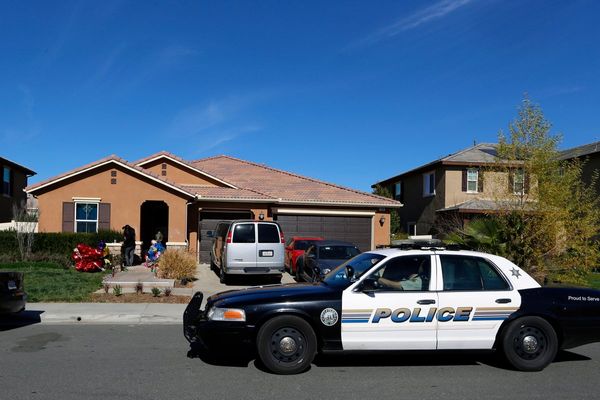
Turkey's Recep Tayyip Erdogan has launched his bid for an unprecedented third term as president in May polls, but rocketing inflation is threatening his reelection hopes as he heads into his toughest campaign yet.
In Kadikoy, a middle-class district of Istanbul, people patiently queue for a free Iftar meal to mark the end of a day of fasting during the Islamic holy month of Ramadan.
Many wait more than an hour for a meager meal of a sandwich and soup – including Ahmet, who only wants to be identified by his first name.
"Why do you think all these people are waiting here just to receive a small food parcel?" he asks.
"Unfortunately, everything is so expensive. The rents, the economy… the people are finished," Ahmet adds, as he looks at the long line ahead.
The opposition-controlled municipal council of Istanbul is providing free food. Similar services are provided nationwide, with most of Turkey's main cities under opposition control.
Inflation at 55 percent
The opposition is highlighting Turkey's inflation rate as the country heads to parliamentary and presidential elections on 15 May.
It's officially at 55 percent, but believed by many economists to be much higher. And they blame President Erdogan for his unorthodox policy of cutting rather than raising interest rates to control inflation.
"It's devastating. Poll after poll, we see up to 80 percent of participants complaining about economic conditions," says Atilla Yesilada, a Turkey analyst for GlobalSource Partners, quoting the latest opinion polls.
"At least 80 percent think things have gotten worse over the last 12 months. Sixty percent, on average, think they will even get worse in the next 12 months," he continues.
"Turkey's going to be shellshocked because prices will have to be increased, millions of households will no longer be able to afford electricity, natural gas, or both."
Food costs soar
The authorities are getting nervous about criticism.
A graphic designer who produced stickers blaming Erdogan for rising food prices and placed them in supermarkets was detained and charged with insulting the Turkish president. He's now a hero on opposition social media sites.
In an Istanbul market, local farmers try to sell their produce. Many complain about the lack of customers and warn they're struggle to survive.
"Compared to the last year, there is a 100 percent increase in prices, even more, especially in feed prices. The feed prices doubled, and we have big hardships in producing and selling eggs," said Meral, a farmer who only wanted to give her first name.
"The same is true for our milk production. It is extremely expensive. I have been doing this job for the last ten years. Now we don't earn any money; we are just striving to keep production going. We can't cover all the work we put in," she added.

Other farmers say they're in the same boat.
"The gas prices shot up 100 percent. We rented our field, and the rents went up immensely. The workers' rate used to be 150 Turkish lira, now it has gone up to 400," complained Yusuf Kahveci, a farmer with the company Akasya Agriculture.
"We can't pass the cost on to the customers because they are not able to afford it. We have regular customers; they used to buy 30 eggs, now they ask for five or six," he said.
Unifying issue
One of Erdogan's most significant achievements was years of unprecedented economic growth and with it, the creation of a powerful religious middle-class. This group was always fearful their gains could be lost if Erdogan should lose power to pro-secular parties, analysts say.
But soaring inflation could change that political equation, argues Osman Sert, director of PanoramaTR Research.
"The economic crisis is cutting through all the segments, all the identities, and that's why it is lessening the effect of polarization, because both the conservatives and the secularists and all the others are being affected by inflation and the economic crisis almost equally," said Sert.
The government is now trying to change the agenda.
This week Turkey launched its first amphibious assault ship, and Erdogan said the event underlined how he'd turned the country into a regional power. His words were designed to court his nationalist religious voting base.
Whether that base remains loyal is likely key to his reelection bid.







